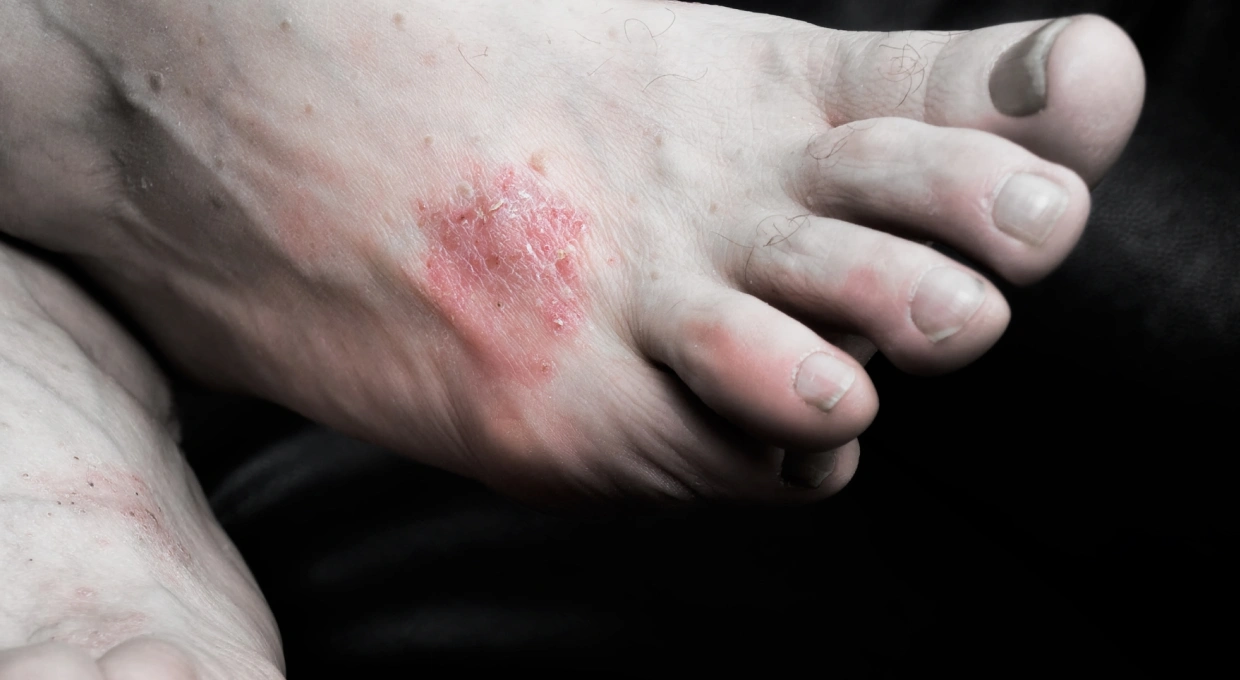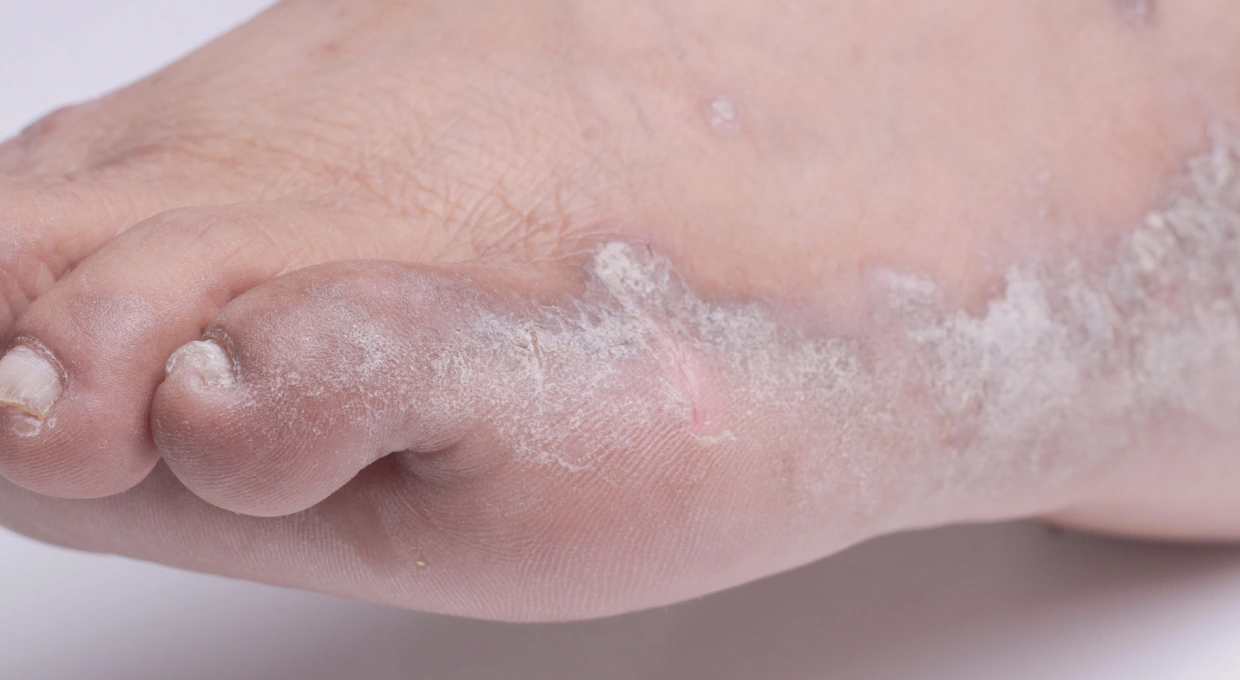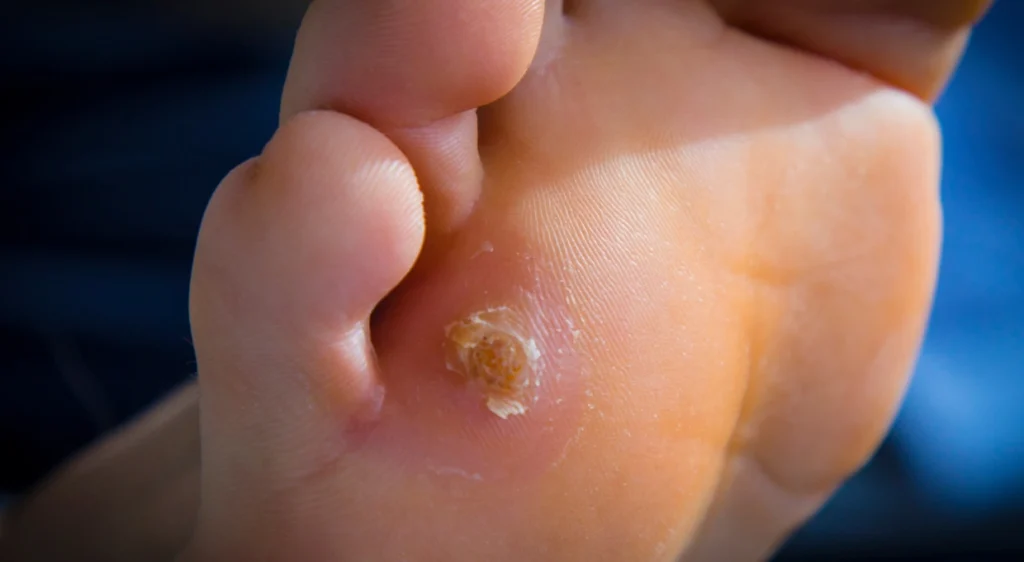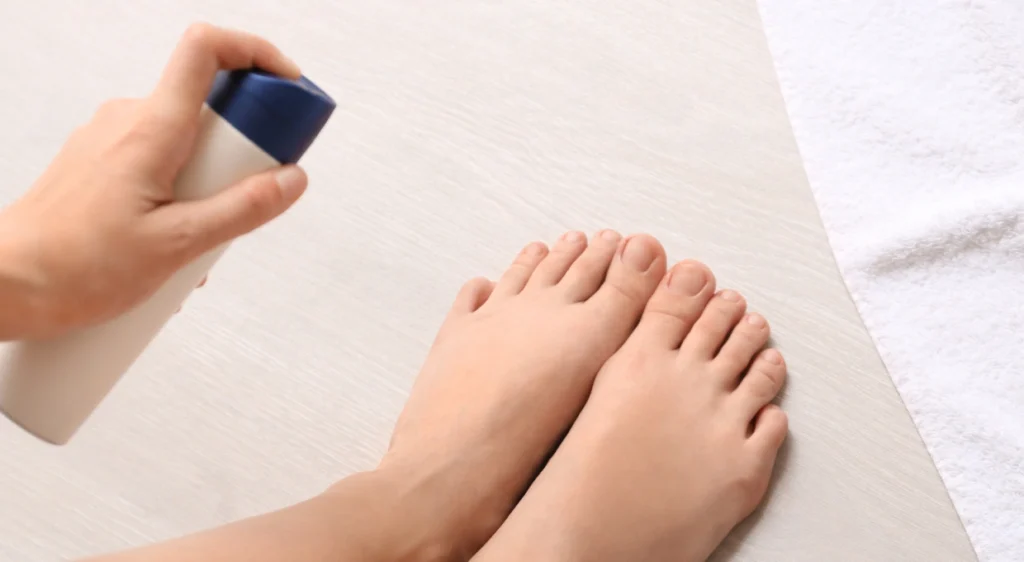Psoriasis is a chronic skin disease that can affect any part of the body, including the feet. In this area, psoriasis can be particularly uncomfortable due to the pressure and friction to which the feet are subjected on a daily basis. Fortunately, effective treatments are available to control the symptoms and improve the quality of life of those who suffer from it.
What is Psoriasis?
Psoriasis is an autoimmune disease that accelerates the life cycle of skin cells. This rapid process causes the accumulation of dead cells on the surface of the skin, forming scales and red patches that can be painful and itchy. On the feet, psoriasis can appear as thickened, scaly, dry areas, often with painful fissures.
Symptoms of Psoriasis on the Feet
Symptoms of psoriasis on the feet can vary depending on the severity of the disease, but the most common include:

1. Squamous Plates
The scaly plaques in psoriasis are areas of reddened skin covered with silvery or whitish scales. These plaques usually appear on the soles of the feet and can be painful.
2. Cracks and Crevices
Dry, thickened skin can cause painful cracks, especially in areas of increased pressure, such as the heels.
3. Itching and Burning
Psoriasis on the feet often causes intense itching and a burning sensation, which can lead to scratching, aggravating the lesion.
4. Pain and Sensitivity
Cracks in the plaques and inflammation can cause pain and tenderness, making it difficult to walk or stand for prolonged periods of time.
Psoriasis Foot Treatments
The treatment of psoriasis on the feet should be personalized and supervised by a dermatologist or podiatrist, as each case may present different degrees of severity. Common treatments include:
1. Topical Creams and Ointments
Topical corticosteroids are one of the most common treatments to reduce inflammation and redness. Topical retinoids and vitamin D analogs can also be effective in reducing skin cell proliferation.
2. Emollients and Moisturizers
Keeping the skin moisturized is essential to reduce dryness and prevent cracks. Regular use of emollient creams rich in urea or lanolin is recommended to soften the plaques and prevent the formation of cracks.
3. Phototherapy
Controlled exposure to ultraviolet (UV) light under medical supervision can help decrease cell proliferation and reduce psoriasis symptoms. This treatment can be performed in a clinic or with special devices for home use.
4. Systemic Medications
In severe cases of psoriasis, physicians may prescribe oral or injectable medications that modulate the immune system, such as immunosuppressants or biologics. These treatments are generally for those patients who do not respond to topical therapies or phototherapy.
5. Home Care
It is important to adopt certain practices for the management of psoriasis on the feet at home, such as wearing soft, well-fitting socks, avoiding shoes that generate friction and performing foot baths with warm water to soften the plaques before applying topical treatments.
Preventive and Relief Measures
In addition to medical treatment, there are measures that can help prevent outbreaks of psoriasis on the feet and improve quality of life:
1. Avoiding Stress
Stress is a known trigger for psoriasis. Practicing relaxation techniques, such as yoga or meditation, may help reduce the frequency of flare-ups.
2. Shoe Care
Wearing comfortable shoes that do not exert excessive pressure on the feet and that allow good ventilation is essential to avoid irritation of the affected skin.
3. Maintain a Healthy Weight
Being overweight can increase pressure on the feet, exacerbating the symptoms of psoriasis. Maintaining a healthy weight through a balanced diet and regular exercise can be beneficial.
4. Avoid Triggers
Identifying and avoiding specific triggers, such as alcohol, tobacco or certain foods, can help control symptoms.
Conclusion
Foot psoriasis is a challenging condition that requires a comprehensive and personalized treatment approach. With the right combination of medical treatments and preventive care, it is possible to significantly improve symptoms and keep the skin as healthy as possible. If you are experiencing symptoms of psoriasis on your feet, it is essential to consult a specialist for proper diagnosis and treatment. At Clinica San Roman, we are committed to providing the best care for your feet, helping you to effectively manage this condition and improve your quality of life.



